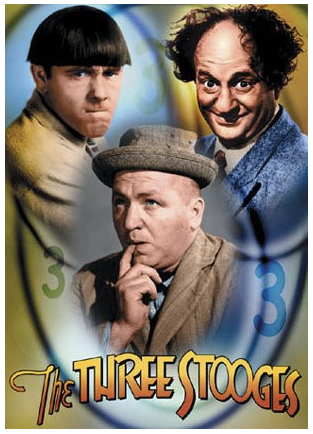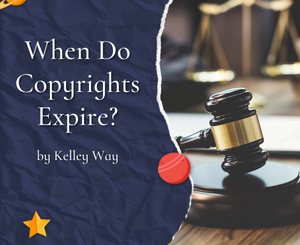Trademark Protection for Fictional Characters
 Welcome to the monthly series on legal issues for authors to empower you, the artist entrepreneur. Today we focus on trademark protection for fictional characters from our monthly guest columnist, Kelley Way, a lawyer specializing in literary law and other aspects of law. She’s also a writer! If you have general questions for Kelley on contracts or other aspects of literary law, be sure to comment below. And you can also email her, too.
Welcome to the monthly series on legal issues for authors to empower you, the artist entrepreneur. Today we focus on trademark protection for fictional characters from our monthly guest columnist, Kelley Way, a lawyer specializing in literary law and other aspects of law. She’s also a writer! If you have general questions for Kelley on contracts or other aspects of literary law, be sure to comment below. And you can also email her, too.
PS. A list of books on literary law can be found here.
And now for a bit of necessary legalese: Please note that this article does not constitute legal advice, and that an attorney-client relationship is not formed by reading the article or by commenting thereon.
***
Trademark Protection for Fictional Characters
Hello again, and I hope everyone is enjoying the holidays! My last post talked about how fictional characters may be protected under copyright law; this time the focus will be on trademark law. At this time, the cases have all dealt with images, rather than with a character that is only described in prose, but it is possible that protection could be extended to such a character under the right circumstances.
As I’ve said before, trademark law exists so that consumers can identify the source of the goods and services they purchase, and so the provider of those goods and services can build a reputation that can be associated with their brand. This applies to fictional characters just as much as it applies to tangible products. With fictional characters, the courts ask:
1) whether the character is so closely associated with the author/producer that consumers think of the author/producer when they see the character (i.e. is there a trademark?); and
2) would the use be likely to cause confusion, mistake or deception as to its origin, association, sponsorship, or approval in a commercial setting (i.e. is there likelihood of confusion as to the source of the work the character appears in?).
For example, Warner Brothers sued ABC back in the 80’s, claiming that the TV show The Greatest American Hero infringed on their Superman trademark. The court found the image and indicia of a cartoon character could act as a trademark for the source of the character, and Superman’s name and image fit their criteria, but in that case, the bumbling and inept Ralph Hinkley was too dissimilar from Superman for there to be confusion about the character’s source.
So far, this is pretty much in line with general trademark law.
What throws a wrench in the works is when the plaintiff is trying to use trademark law to protect a work that is no longer protected by copyright.
Technically, a trademark could last forever, as long as it’s still associated with the maker or provider of a particular good or service. Because of that, some companies have tried to protect works that are or will soon be in the public domain through claims of trademark infringement, as a way of extending copyright protection.
For example, the owner of the rights to the Three Stooges franchise once sued someone for using a public domain film clip from one of the Three Stooges movies, claiming there was a violation of trademark and publicity rights. The court found that the plaintiff was trying to protect the film clip using trademark law, and said that trademark law could not be used to circumvent copyright law.
Even with this ruling, though, this is a rather gray area, and there’s a lot of speculation as to how (or even if) this could be accomplished.
Have you noticed, if you’ve watched a Disney film in the last few years, that the film now opens with a clip of Mickey Mouse from his original appearance in Steamboat Willy? I could be wrong, but I suspect that Disney is trying to create a trademark out of this clip in preparation for when the movie enters the public domain. Whether this will be successful when that time comes remains to be seen.
Hopefully this has proven helpful, or at least interesting. If you’ve any questions or comments, please don’t hesitate to contact me, and/or to leave a comment below. Otherwise, I’ll see you again next year. Happy holidays!
ABOUT THE AUTHOR
Kelley Way was born and raised in Walnut Creek, California. She graduated from UC Davis with a B.A. in English, followed by a Juris Doctorate. Kelley is a member of the California Bar, and an aspiring writer of young adult fantasy novels. She can be contacted at KelleyAWay@gmail.com.







